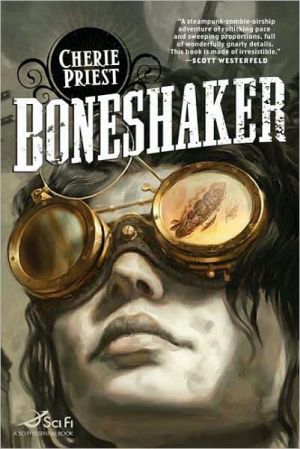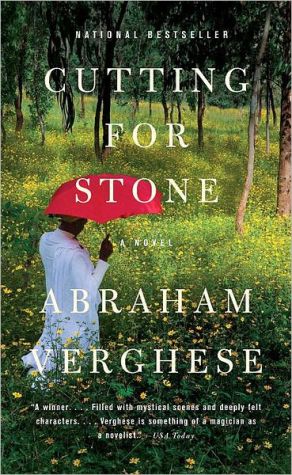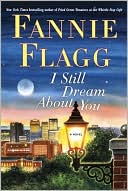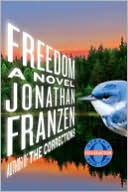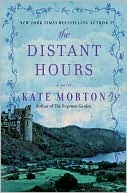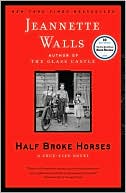Boneshaker (Clockwork Century Series)
In the early days of the Civil War, rumors of gold in the frozen Klondike brought hordes of newcomers to the Pacific Northwest. Anxious to compete, Russian prospectors commissioned inventor Leviticus Blue to create a great machine that could mine through Alaska’s ice. Thus was Dr. Blue’s Incredible Bone-Shaking Drill Engine born.\ But on its first test run the Boneshaker went terribly awry, destroying several blocks of downtown Seattle and unearthing a subterranean vein of blight gas that...
Search in google:
In the early days of the Civil War, rumors of gold in the frozen Klondike brought hordes of newcomers to the Pacific Northwest. Anxious to compete, Russian prospectors commissioned inventor Leviticus Blue to create a great machine that could mine through Alaska’s ice. Thus was Dr. Blue’s Incredible Bone-Shaking Drill Engine born.But on its first test run the Boneshaker went terribly awry, destroying several blocks of downtown Seattle and unearthing a subterranean vein of blight gas that turned anyone who breathed it into the living dead.Now it is sixteen years later, and a wall has been built to enclose the devastated and toxic city. Just beyond it lives Blue’s widow, Briar Wilkes. Life is hard with a ruined reputation and a teenaged boy to support, but she and Ezekiel are managing. Until Ezekiel undertakes a secret crusade to rewrite history.His quest will take him under the wall and into a city teeming with ravenous undead, air pirates, criminal overlords, and heavily armed refugees. And only Briar can bring him out alive.The Barnes & Noble ReviewThick-lensed goggles of funky brass and leather are a trademark signifier of steampunk. But frequently, beyond a certain fashionableness their utility is negligible. So when Cherie Priest goes to the trouble in her novel Boneshaker to provide a clever rationale for the existence and prevalence of such eye-gear, you know you're in for a meticulously conceived and executed ride.
Boneshaker\ One \ \ She saw him, and she stopped a few feet from the stairs."I'm sorry," he said quickly. "I didn't mean to startle you."The woman in the dull black overcoat didn't blink and didn't move. "What do you want?"He'd prepared a speech, but he couldn't remember it. "To talk. To you. I want to talk to you."Briar Wilkes closed her eyes hard. When she opened them again, she asked, "Is it about Zeke? What's he done now?" "No, no, it's not about him," he insisted. "Ma'am, I was hoping we could talk about your father."Her shoulders lost their stiff, defensive right angles, and she shook her head. "That figures. I swear to God, all the men in my life, they ..." She stopped herself. And then she said, "My father was a tyrant, and everyone he loved was afraid of him. Is that what you want to hear?"He held his position while she climbed the eleven crooked stairs that led the way to her home, and to him. When she reached the narrow porch he asked, "Is it true?" "More true than not."She stood before him with her fingers wrapped around a ring of keys. The top of her head was level with his chin. Her keys were aimed at his waist, he thought, until he realized he was standing in front of the door. He shuffled out of her way."How long have you been waiting for me?" she asked.He strongly considered lying, but she pinned him to the wall with her stare. "Several hours. I wanted to be here when you got home."The door clacked, clicked, and scooted inward. "I took an extra shift at the 'works. You could've come back later." "Please, ma'am. May I come inside?"She shrugged, but she didn't say no, and she didn't close him out in the cold, so he followed behind her, shutting the door and standing beside it while Briar found a lamp and lit it.She carried the lamp to the fireplace, where the logs had burned down cold. Beside the mantle there was a poker and a set of bellows, and a flat iron basket with a cache of split logs. She jabbed the poker against the charred lumps and found a few live coals lingering at the bottom.With gentle encouragement, a handful of kindling, and two more lengths of wood, a slow flame caught and held.One arm at a time, Briar pried herself out of the overcoat and left it hanging on a peg. Without the coat, her body had a lean look to it—as if she worked too long, and ate too little or too poorly. Her gloves and tall brown boots were caked with the filth of the plant, and she was wearing pants like a man. Her long, dark hair was piled up and back, but two shifts of labor had picked it apart and heavy strands had scattered, escaping the combs she'd used to hold it all aloft.She was thirty-five, and she did not look a minute younger.In front of the growing, glowing fire there was a large and ancient leather chair. Briar dropped herself into it. "Tell me, Mr ... . I'm sorry. You didn't say your name." "Hale. Hale Quarter. And I must say, it's an honor to meet you."For a moment he thought she was going to laugh, but she didn't.She reached over to a small table beside the chair and retrieved a pouch. "All right, Hale Quarter. Tell me. Why did you wait outside so long in this bitter weather?" From within the pouch she picked a small piece of paper and a large pinch of tobacco. She worked the two together until she had a cigarette, and she used the lamp's flame to coax the cigarette alight.He'd gotten this far by telling the truth, so he risked another confession. "I came when I knew you wouldn't be home. Someone told me that if I knocked, you'd shoot through the peephole."She nodded, and pressed the back of her head against the leather. "I've heard that story, too. It doesn't keep nearly as many folks away as you might expect."He couldn't tell if she was serious, or if her response was a denial. "Then I thank you double, for not shooting me and for letting me come inside." "You're welcome.""May I ... may I take a seat? Would that be all right?" "Suit yourself, but you won't be here long," she predicted."You don't want to talk?" "I don't want to talk about Maynard, no. I don't have any answers about anything that happened to him. Nobody does. But you can ask whatever you want. And you can take your leave when I get tired of you, or when you get bored with all the ways I can say 'I don't know'—whichever comes first."Encouraged, he reached for a tall-backed wooden chair and dragged it forward, putting his body directly into her line of sight. His notebook folded open to reveal an unlined sheet with a few small words scribbled at the top.While he was getting situated, she asked him, "Why do you want to know about Maynard? Why now? He's been dead for fifteen years. Nearly sixteen." "Why not now?" Hale scanned his previous page of notes, and settled down with his pencil hovering over the next blank section. "But to answer you more directly, I'm writing a book." "Another book?" she said, and it sounded sharp and fast."Not a sensational piece," he was careful to clarify. "I want to write a proper biography of Maynard Wilkes, because I believe he's been done a great disservice. Don't you agree?" "No, I don't agree. He got exactly what he should have expected. He spent thirty years working hard, for nothing, and he was treateddisgracefully by the city he served." She fiddled with the half-smoked wand of tobacco. "He allowed it. And I hated him for it." "But your father believed in the law."She almost snapped at him. "So does every criminal."Hale perked. "Then you do think he was a criminal?"One more hard draw on the cigarette came and went, and then she said, "Don't twist my words. But you're right. He believed in the law. There were times I wasn't sure he believed in anything else, but yes. He believed in that."Spits and sparks from the fireplace filled the short silence that fell between them. Finally, Hale said, "I'm trying to get it right, ma'am. That's all. I think there was more to it than a jailbreak—" "Why?" she interrupted. "Why do you think he did it? Which theory do you want to write your book about, Mr. Quarter?"He hesitated, because he didn't know what to think, not yet. He gambled on the theory that he hoped Briar would find least offensive. "I think he was doing what he thought was right. But I really want to know what you think. Maynard raised you alone, didn't he? You must've known him better than anyone."Her face stayed a little too carefully blank. "You'd be surprised. We weren't that close." "But your mother died—""When I was born, that's right. He was the only parent I ever had, and he wasn't much of one. He didn't know what to do with a daughter any more than I know what to do with a map of Spain."Hale sensed a brick wall, so he backed up and tried another way around, and into her good graces. His eyes scanned the smallish room with its solid and unadorned furniture, and its clean but battered floors. He noted the corridor that led to the back side of the house. And from his seat, he could see that all four doors at the end of it were closed."You grew up here, didn't you? In this house?" he pretended to guess.She didn't soften. "Everybody knows that." "They brought him back here, though. One of the boys from the prison break, and his brother—they brought him here and tried to save him. A doctor was sent for, but ..."Briar retrieved the dangled thread of conversation and pulled it. "But he'd inhaled too much of the Blight. He was dead before the doctor ever got the message, and I swear"—she flicked a fingertip's worth of ash into the fire—"it's just as well. Can you imagine what would've happened to him, if he'd lived? Tried for treason, or gross insubordination at least. Jailed, at the minimum. Shot, at the worst. My father and I had our disagreements, but I wouldn't have wished that upon him. It's just as well," she said again, and she stared into the fire.Hale spent a few seconds trying to assemble a response. At last he said, "Did you get to see him, before he died? I know you were one of the last to leave Seattle—and I know you came here. Did you see him, one last time?" "I saw him." She nodded. "He was lying alone in that back room, on his bed, under a sheet that was soaked with the vomit that finally choked him to death. The doctor wasn't here, and as far as I know, he never did come. I don't know if you could even find one, in those days, in the middle of the evacuation." "So, he was alone? Dead, in this house?""He was alone," she confirmed. "The front door was broken, but closed. Someone had left him on the bed, laid out with respect, I do remember that. Someone had covered him with a sheet, and left his rifle on the bed beside him with his badge. But he was dead, and he stayed dead. The Blight didn't start him walking again, so thank God for small things, I suppose."Hale jotted it all down, mumbling encouraging sounds as his pencil skipped across the paper. "Do you think the prisoners did that?" "You do," she said. It wasn't quite an accusation."I suspect as much," he replied, but he was giddily certain of it. The prison-boy's brother had told him they'd left Maynard's place clean, and they didn't take a thing. He'd said they'd laid him out onthe bed, his face covered up. These were details that no one else had ever mentioned, not in all the speculation or investigation into the Great Blight Jailbreak. And there had been plenty of it over the years."And then ...," he tried to prompt her."I dragged him out back and buried him under the tree, beside his old dog. A couple days later, two city officers came out and dug him back up again." "To make sure?"She grunted. "To make sure he hadn't skipped town and gone back east; to make sure the Blight hadn't started him moving again; to make sure I'd put him where I said I did. Take your pick."He finished chasing her words with his pencil and raised his eyes. "What you just said, about the Blight. Did they know, so soon, about what it could do?" "They knew. They figured it out real quick. Not all the Blight-dead started moving, but the ones who did climbed up and went prowling pretty fast, within a few days. But mostly, people wanted to make sure Maynard hadn't gotten away with anything. And when they were satisfied that he was out of their reach, they dumped him back here. They didn't even bury him again. They just left him out there by the tree. I had to put him in the ground twice."Hale's pencil and his chin hung over the paper. "I'm sorry, did you say—do you mean ...?" "Don't look so shocked." She shifted in the chair and the leather tugged squeakily at her skin. "At least they didn't fill in the hole, the first time. The second time was a lot faster. Let me ask you a question, Mr. Quarter." "Hale, please.""Hale, as you like. Tell me, how old were you when the Blight came calling?"His pencil was shuddering, so he placed it flat against the notebook and answered her. "I was almost six." "That's about what I figured. So you were a little thing, then. You don't even remember it, do you—what it was like before the wall?"He turned his head back and forth; no, he didn't. Not really. "But I remember the wall, when it first went up. I remember watching it rise, foot by foot, around the contaminated blocks. All two hundred feet of it, all the way around the evacuated neighborhoods." "I remember it, too. I watched it from here. You could see it from that back window, by the kitchen." She waved her hand toward the stove, and a small rectangular portal behind it. "All day and all night for seven months, two weeks, and three days they worked to build that wall." "That's very precise. Do you always keep count of such things?""No," she said. "But it's easy to remember. They finished construction on the day my son was born. I used to wonder if he didn't miss it, all the noise from the workers. It was all he ever heard, while I was carrying him—the swinging of the hammers, the pounding of the masons' chisels. As soon as the poor child arrived, the world fell silent."Something occurred to her, and she sat up straight. The chair hissed.She glanced at the door. "Speaking of the boy, it's getting late. Where's he gotten off to, I wonder? He's usually home by now." She corrected herself. "He's often home by now, and it's damnably cold out there."Hale settled against the stiff wood back of his borrowed seat. "It's a shame he never got to meet his grandfather. I'm sure Maynard would've been proud."Briar leaned forward, her elbows on her knees. She put her face in her hands and rubbed her eyes. "I don't know," she said. She straightened herself and wiped her forehead with the back of her arm. She peeled off her gloves and dropped them onto the squat, round table between the chair and the fireplace."You don't know? But there aren't any other grandchildren, are there? He had no other children, did he?" "Not as far as I know, but I guess there's no telling." She leaned forward and began to unlace her boots. "I hope you'll excuse me," she said. "I've been wearing these since six o'clock this morning." "No, no, don't mind me," he said, and kept his eyes on the fire. "I'm sorry. I know I'm intruding." "You are intruding, but I let you in, so the fault is mine." One boot came free of her foot with a sucking pop. She went to work on the other one. "And I don't know if Maynard would've cared much for Zeke, or vice versa. They're not the same kind." "Is Zeke ..." Hale was tiptoeing toward dangerous ground, and he knew it, but he couldn't stop himself. "Too much like his father, perhaps?"Briar didn't flinch, or frown. Again she kept that poker-flat stare firmly in place as she removed the other boot and set it down beside the first one. "It's possible. Blood may tell, but he's still just a boy. There's time yet for him to sort himself out. But as for you, Mr. Hale, I'm afraid I'm going to have to see you on your way. It's getting late, and dawn comes before long."Hale sighed and nodded. He'd pushed too hard, and too far. He should've stayed on topic, on the dead father—not the dead husband."I'm sorry," he told her as he rose and stuffed his notebook under his arm. He replaced his hat, pulled his coat tightly across his chest, and said, "And I thank you for your time. I appreciate everything you've told me, and if my book is ever published, I'll make note of your help." "Sure," she said.She closed Hale out, and into the night. He braced himself to face the windy winter evening, tugging his scarf tighter around his neck and adjusting his wool gloves.Copyright © 2009 by Cherie Priest
\ From Barnes & NobleCherie Priest's much-anticipated steampunk debut has finally arrived in the form of a paperback original. Its plot features the sort of calibrated suspense that readers of her Four and Twenty Blackbirds would expect. Boneshaker derives its title from the Bone-Shaking Drill Engine, a device designed to give Russian prospectors a leg up in the race for Klondike gold. Unfortunately, there was one hitch: On its trial run, the Boneshaker went haywire and, long story short, turned much of Seattle into a city of the dead. Now, 16 years later, a teenage boy decides to find out what is behind that mysterious wall. Can his sister save him in time? Zombie lit of the first order.\ \ \ \ \ Publishers WeeklyMaternal love faces formidable challenges in this stellar steampunk tale. In an alternate 1880s America, mad inventor Leviticus Blue is blamed for destroying Civil War–era Seattle. When Zeke Wilkes, Blue’s son, goes into the walled wreck of a city to clear his father’s name, Zeke’s mother, Briar Wilkes, follows him in an airship, determined to rescue her son from the toxic gas that turns people into zombies (called rotters and described in gut-churning detail). When Briar learns that Seattle still has a mad inventor, Dr. Minnericht, who eerily resembles her dead husband, a simple rescue quickly turns into a thrilling race to save Zeke from the man who may be his father. Intelligent, exceptionally well written and showcasing a phenomenal strong female protagonist who embodies the complexities inherent in motherhood, this yarn is a must-read for the discerning steampunk fan. (Oct.)\ \ \ Kirkus ReviewsPriest (Fathom, 2008, etc.) bravely, and successfully, ventures into steampunk and zombie-horror territory. The action takes place in an alternate-history version of 1880s Seattle. In Priest's variant, the Klondike gold rush came decades early. In 1863, Seattle scientist Leviticus Blue invented a massive steam-powered machine (Dr. Blue's Incredible Bone-Shaking Drill Engine) to drill for gold through thick ice. When tested, it went out of control and wreaked havoc throughout Seattle, destroying several buildings and killing dozens. Soon after, a mysterious gas, the Blight, turned many who breathed it into predatory zombies called "rotters." Sixteen years later, Blue's widow Briar and son Zeke have little beyond a ruined family reputation. When Zeke impulsively decides to revisit walled-off Seattle to find proof that his father wasn't a villain, Briar follows him into the rotter-infested city. Priest, a Seattle resident, delivers a fast-moving story filled with cool steampunk technology and scary zombies. Fans of science fiction will find much to enjoy here. An impressive and auspicious genre-hopping adventure.\ \ \ \ \ The Barnes & Noble ReviewFrom Paul Di Filippo's "SPECULTATOR" column on The Barnes & Noble Review\ \ Has steampunk jumped Captain Nemo's clockwork shark yet?\ The genre -- succinctly described as a mix of archaic tech (either real or fanciful), the supernatural, and postmodern metafictional tricksterism, set in the consensus historical past or alternate timelines -- was first christened in 1987, a lifetime ago as cultural and literary fads are measured, in a letter to Locus magazine from the writer K. W. Jeter. Of course, the actual roots of the form extend back even further, perhaps as early as 1965, when a certain television show named The Wild, Wild West debuted.\ Some literary styles and tropes wane with their cultural moment, but others have proved exceedingly long-lived, with writers continually discovering unexplored narrative possibilities within elastic bounds. Perhaps the best example is the Gothic, still with us today, and flourishing, despite being a couple of centuries old.\ But steampunk has exfoliated beyond the merely literary, into the daily lives of its fans. Like Civil War re-enactors or medievalist members of the Society for Creative Anachronism, "steampunks" now include those for whom the novels and stories have been superseded by cosplay, crafting, music, partying, artwork, manga, anime, feature films, and the creation of props or working hardware. For every reader and writer of steampunk fiction, there are probably hundreds or thousands of other activists who gleefully embrace some non-written manifestation of the steampunk ethos.\ Generally speaking, by the time a subculture such as steampunk secures the attention of major media, resulting in extensive coverage of the craze, said phenomenon is already on the way out. But despite numerous and growing features about steampunk in the national press, such does not seem to be the case, at least in terms of fiction. The juggernaut that is steampunk, like Dr. Loveless's giant mechanical spider in the 1999 film version of The Wild, Wild West, seems capable of crushing all naysayers.\ Yet what of the literature itself -- now transformed into something of an appendage -- that spawned the movement? Has it exhausted all the radium bullets in its Gatling gun, or is fresh work still capable of surprising the reader?\ Well, the latter half of 2009 proved to be a fine period for steampunk, and 2010 seems to be starting out likewise, with a new novel that manages to do some uncanny things with the genre. (As well, readers should be alerted to Steampunk Reloaded, a forthcoming anthology compiled by Ann and Jeff Vandermeer.)\ Thick-lensed goggles of funky brass and leather are a trademark signifier of steampunk. But frequently, beyond a certain fashionableness their utility is negligible. So when Cherie Priest goes to the trouble in her novel Boneshaker to provide a clever rationale for the existence and prevalence of such eye-gear, you know you're in for a meticulously conceived and executed ride.\ Seattle, 1863: the giant tunneling machine of mad inventor Levi Blue manages to destroy a sizable portion of the city and unleash a subterranean gas -- the Blight -- which zombifies all who inhale it. (The gas is made visible through, naturally, those goggles.) The citizens respond by walling off the infected district and leaving those trapped inside to die -- or worse. Sixteen years later, Blue's ostracised widow, Briar, lives in the ghetto just outside the wall with her teenaged son Zeke. Intent on clearing his father's name, Zeke takes off one day across the wall, and Briar has no recourse but to follow.\ Priest's steampunk wasteland is playfully and productively anomalous. Generally, the genre likes to focus on intact and functioning societies, whether dystopian or mundanely civil. Her depiction of the interzone as an outlaw realm of freedom, however dangerous, evokes the punk dream of life outside establishment strictures -- a dream too often actually neglected in the genre that borrows half its name from that music. The horror tropes are another entertaining divergence from standard steampunk templates.\ Likewise, the parallel domestic quests of mother and son (Priest divides the action in half between Zeke and Briar) is a freshening of both motivation and character from the rote adventurers the reader often encounters in this type of tale.\ Priest's small, carefully constrained sphere of action (some widening dialogue pertains to the Civil War still raging back East, long after our version had ended) does, however, feel claustrophobic and slightly unambitious at times. But within that limited domain, she manages to impart a vivid sense of strangeness and adventure.\ \ \
